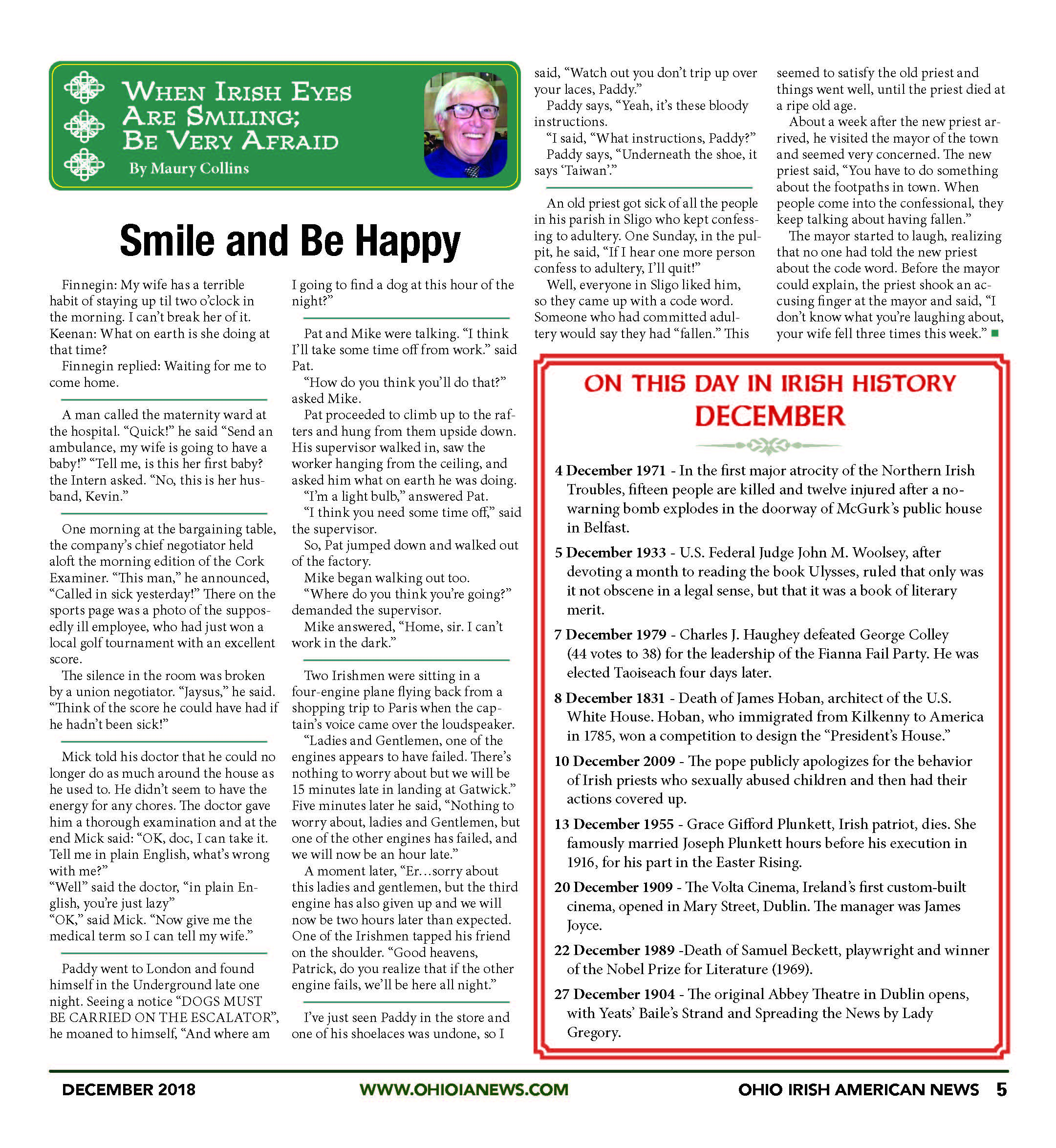On This Day in Irish History
ON THIS DAY in IRISH HISTORY DECEMBER
4 December 1971 – In the first major atrocity of the Northern Irish Troubles, fifteen people are killed and twelve injured after a no-warning bomb explodes in the doorway of McGurk’s public house in Belfast.
5 December 1933 – U.S. Federal Judge John M. Woolsey, after devoting a month to reading the book Ulysses, ruled that only was it not obscene in a legal sense, but that it was a book of literary merit.
7 December 1979 – Charles J. Haughey defeated George Colley (44 votes to 38) for the leadership of the Fianna Fail Party. He was elected Taoiseach four days later.
8 December 1831 – Death of James Hoban, architect of the U.S. White House. Hoban, who immigrated from Kilkenny to America in 1785, won a competition to design the “President’s House.”
10 December 2009 – The pope publicly apologizes for the behavior of Irish priests who sexually abused children and then had their actions covered up.
13 December 1955 – Grace Gifford Plunkett, Irish patriot, dies. She famously married Joseph Plunkett hours before his execution in 1916, for his part in the Easter Rising.
20 December 1909 – The Volta Cinema, Ireland’s first custom-built cinema, opened in Mary Street, Dublin. The manager was James Joyce.
22 December 1989 – Death of Samuel Beckett, playwright and winner of the Nobel Prize for Literature (1969).
27 December 1904 – The original Abbey Theatre in Dublin opens, with Yeats’ Baile’s Strand and Spreading the Newsby Lady Gregory.



